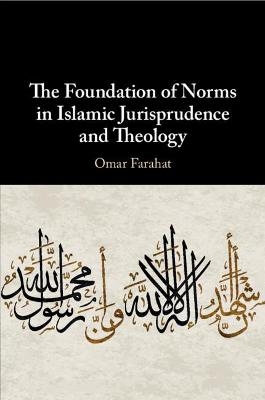
The Foundation of Norms in Islamic Jurisprudence and Theology
Seiten
2021
Cambridge University Press (Verlag)
978-1-108-70147-1 (ISBN)
Cambridge University Press (Verlag)
978-1-108-70147-1 (ISBN)
This book offers a new way of understanding classical Islamic theories, holding that divine revelation is necessary for the knowledge of norms and its reading of the issue of reason breaks new ground in Islamic theology, law and ethics. It will appeal to students and scholars of Islamic studies, Islamic ethics, law and post-colonial theory.
In this book, Omar Farahat presents a new way of understanding the work of classical Islamic theologians and legal theorists who maintained that divine revelation is necessary for the knowledge of the norms and values of human actions. Through a reconstruction of classical Ashʿarī-Muʿtazilī debates on the nature and implications of divine speech, Farahat argues that the Ashʿarī attachment to revelation was not a purely traditionalist position. Rather, it was a rational philosophical commitment emerging from debates in epistemology and theology. He further argues that the particularity of this model makes its distinctive features helpful for contemporary scholars who defend a form of divine command theory. Farahat's volume thus constitutes a new reading of the issue of reason and revelation in Islam and breaks new ground in Islamic theology, law and ethics.
In this book, Omar Farahat presents a new way of understanding the work of classical Islamic theologians and legal theorists who maintained that divine revelation is necessary for the knowledge of the norms and values of human actions. Through a reconstruction of classical Ashʿarī-Muʿtazilī debates on the nature and implications of divine speech, Farahat argues that the Ashʿarī attachment to revelation was not a purely traditionalist position. Rather, it was a rational philosophical commitment emerging from debates in epistemology and theology. He further argues that the particularity of this model makes its distinctive features helpful for contemporary scholars who defend a form of divine command theory. Farahat's volume thus constitutes a new reading of the issue of reason and revelation in Islam and breaks new ground in Islamic theology, law and ethics.
Omar Farahat is Assistant Professor of Law at McGill University, Montreal.
Introduction: classical Islamic thought and the promise of post-secularism; Part I. Epistemological and Metaphysical Foundations: 1. What do we know without revelation? The epistemology of divine speech; 2. God in relation to us: the metaphysics of divine speech; 3. The nature of divine speech in classical theology; Part II. The Construction of Norms in Islamic Jurisprudence: 4. The nature of divine commands in classical legal theory; 5. Divine commands in the imperative mood; 6. The persistence of natural law in Islamic jurisprudence.
| Erscheinungsdatum | 21.06.2021 |
|---|---|
| Zusatzinfo | Worked examples or Exercises |
| Verlagsort | Cambridge |
| Sprache | englisch |
| Maße | 230 x 150 mm |
| Gewicht | 370 g |
| Themenwelt | Geschichte ► Teilgebiete der Geschichte ► Militärgeschichte |
| Geisteswissenschaften ► Religion / Theologie ► Islam | |
| Recht / Steuern ► Allgemeines / Lexika | |
| Recht / Steuern ► EU / Internationales Recht | |
| Recht / Steuern ► Rechtsgeschichte | |
| ISBN-10 | 1-108-70147-7 / 1108701477 |
| ISBN-13 | 978-1-108-70147-1 / 9781108701471 |
| Zustand | Neuware |
| Haben Sie eine Frage zum Produkt? |
Mehr entdecken
aus dem Bereich
aus dem Bereich
neueste Manipulationstechniken als Waffengattung der NATO
Buch | Softcover (2023)
Westend (Verlag)
24,00 €
Deutschlands Schwäche in der Zeitenwende
Buch | Softcover (2023)
C.H.Beck (Verlag)
18,00 €


